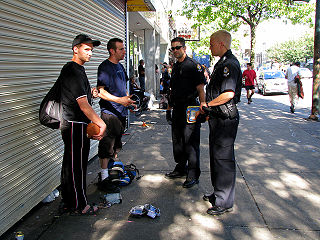Facts
The defendant, Moss, was a University student and managed to obtain a proof copy of his forthcoming exam paper. It was accepted that he always intended to return the proof itself, and therefore could not be convicted of theft of the proof itself; however, he was charged with stealing information belonging to the Senate of the University.
The case was heard by the Liverpool Stipendiary Magistrate, and it was argued by the prosecution that the information itself was property capable of being stolen because it had attached to it a proprietary right of confidence, and once this was breached, the information itself had been stolen. It was argued by the defence that Section 4 of the Theft Act 1968 did not define a class of intangible property beyond a chose in action, and therefore information per se was not protected by the Theft Act 1968.
The magistrate ruled that confidential information was not a form of property as defined by Section 4, and that confidence consisted in the right to control the publication of the proof and was a right over property rather than property in itself.

Trade secrets are a type of intellectual property that includes formulas, practices, processes, designs, instruments, patterns, or compilations of information that have inherent economic value because they are not generally known or readily ascertainable by others, and which the owner takes reasonable measures to keep secret. Intellectual property law gives the owner of a trade secret the right to restrict others from disclosing it.

Theft is the act of taking another person's property or services without that person's permission or consent with the intent to deprive the rightful owner of it. The word theft is also used as a synonym or informal shorthand term for some crimes against property, such as larceny, robbery, embezzlement, extortion, blackmail, or receiving stolen property. In some jurisdictions, theft is considered to be synonymous with larceny, while in others, theft is defined more narrowly. A person who engages in theft is known as a thief.
Larceny is a crime involving the unlawful taking or theft of the personal property of another person or business. It was an offence under the common law of England and became an offence in jurisdictions which incorporated the common law of England into their own law, where in many cases it remains in force.

Identity theft, identity piracy or identity infringement occurs when someone uses another's personal identifying information, like their name, identifying number, or credit card number, without their permission, to commit fraud or other crimes. The term identity theft was coined in 1964. Since that time, the definition of identity theft has been legally defined throughout both the U.K. and the U.S. as the theft of personally identifiable information. Identity theft deliberately uses someone else's identity as a method to gain financial advantages or obtain credit and other benefits. The person whose identity has been stolen may suffer adverse consequences, especially if they are falsely held responsible for the perpetrator's actions. Personally identifiable information generally includes a person's name, date of birth, social security number, driver's license number, bank account or credit card numbers, PINs, electronic signatures, fingerprints, passwords, or any other information that can be used to access a person's financial resources.
The Courts of England and Wales, supported administratively by His Majesty's Courts and Tribunals Service, are the civil and criminal courts responsible for the administration of justice in England and Wales.
Bank fraud is the use of potentially illegal means to obtain money, assets, or other property owned or held by a financial institution, or to obtain money from depositors by fraudulently posing as a bank or other financial institution. In many instances, bank fraud is a criminal offence.

The Theft Act 1968 is an act of the Parliament of the United Kingdom. It creates a number of offences against property in England and Wales.
An anti-social behaviour order is a civil order made in the United Kingdom against a person who had been shown, on the balance of evidence, to have engaged in anti-social behaviour. The orders were introduced by Prime Minister Tony Blair in 1998, and continued in use until abolished in England and Wales by the Anti-Social Behaviour, Crime and Policing Act 2014 on 20 October 2014—although they continue to be used in Scotland and Northern Ireland. ASBOs were replaced in England and Wales by the civil injunctions and criminal behaviour orders. They were designed to address behaviours like intimidation, drunkenness, and violence by individuals and families, using civil orders rather than criminal sanctions. The orders restricted behaviour in some way, such as: prohibiting a return to a certain area or shop; or restricting public behaviours, such as swearing or drinking alcohol. Many saw the ASBOs as connected with young delinquents.

Possession of stolen goods is a crime in which an individual has bought, been given, or acquired stolen goods.
Physical information security is the intersection, the common ground between physical security and information security. It primarily concerns the protection of tangible information-related assets such as computer systems and storage media against physical, real-world threats such as unauthorized physical access, theft, fire and flood. It typically involves physical controls such as protective barriers and locks, uninterruptible power supplies, and shredders. Information security controls in the physical domain complement those in the logical domain, and procedural or administrative controls.

Criminal damage in English law was originally a common law offence. The offence was largely concerned with the protection of dwellings and the food supply, and few sanctions were imposed for damaging personal property. Liability was originally restricted to the payment of damages by way of compensation.

DPP v Armstrong is a decision of the Queen's Bench Division of the English High Court of Justice dealing with incitement when the offence incited could be deemed "impossible" to complete, on the precise facts. It was ruled that this impossibility is irrelevant to the incitement itself and therefore a conviction is sustainable.

Attorney General v Blake[2000] UKHL 45, [2001] 1 AC 268 is a leading English contract law case on damages for breach of contract. It established that in some circumstances, where ordinary remedies are inadequate, restitutionary damages may be awarded.
Obtaining property by deception was formerly a statutory offence in England and Wales and Northern Ireland.
Burglary is a statutory offence in England and Wales.
Breach of confidence in English law is an equitable doctrine that allows a person to claim a remedy when their confidence has been breached. A duty of confidence arises when confidential information comes to the knowledge of a person in circumstances in which it would be unfair if it were disclosed to others. Breach of confidence gives rise to a civil claim. The Human Rights Act 1998 has developed the law on breach of confidence so that it now applies to private bodies as well as public ones.

Honest services fraud is a crime defined in 18 U.S.C. § 1346, added by the United States Congress in 1988, which states "For the purposes of this chapter, the term scheme or artifice to defraud includes a scheme or artifice to deprive another of the intangible right of honest services."

The Code of Criminal Procedure commonly called Criminal Procedure Code (CrPC) was the main legislation on procedure for administration of substantive criminal law in India. It was enacted in 1973 and came into force on 1 April 1974. It provides the machinery for the investigation of crime, apprehension of suspected criminals, collection of evidence, determination of guilt or innocence of the accused person and the determination of punishment of the guilty. It also deals with public nuisance, prevention of offences and maintenance of wife, child and parents.
In Canada, trade secrets are generally considered to include information set out, contained or embodied in, but not limited to, a formula, pattern, plan, compilation, computer program, method, technique, process, product, device or mechanism; it may be information of any sort; an idea of a scientific nature, or of a literary nature, as long as they grant an economical advantage to the business and improve its value. Additionally, there must be some element of secrecy. Matters of public knowledge or of general knowledge in an industry cannot be the subject-matter of a trade secret.
Crawfurd v The Royal Bank (1749), also spelled Crawford v The Royal Bank, was a Court of Session case in Scotland which established the "absolute currency of money", i.e. the fungibility of banknotes.










